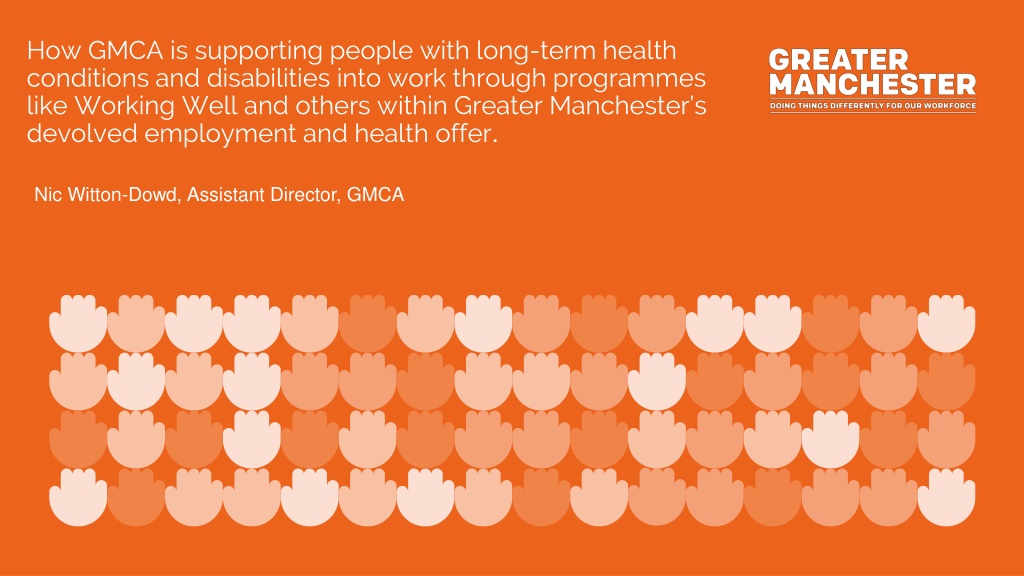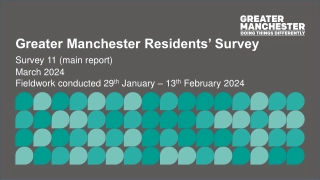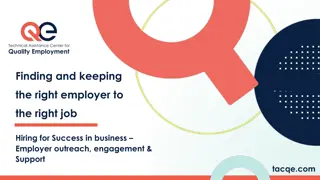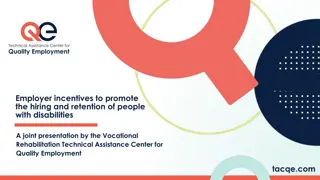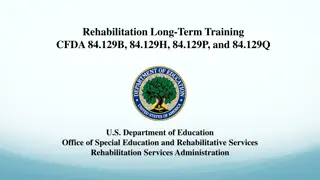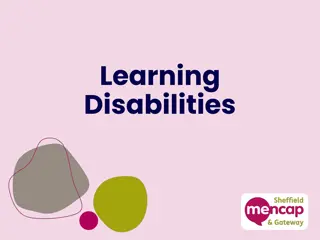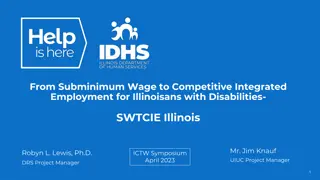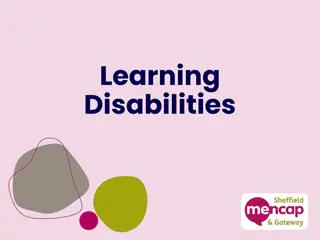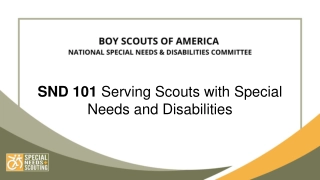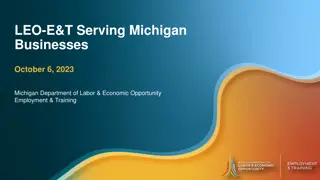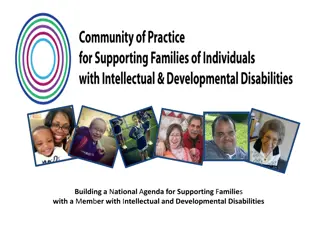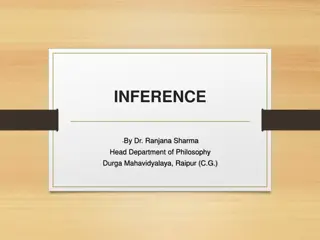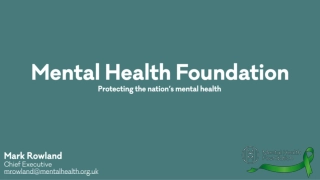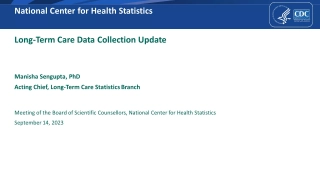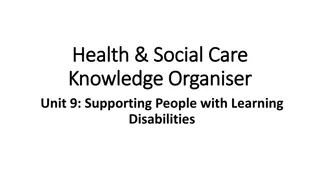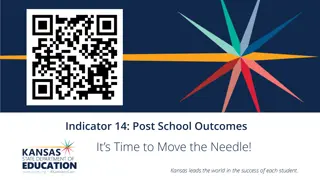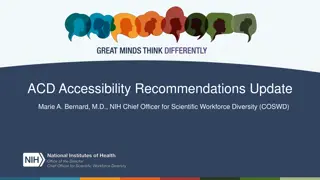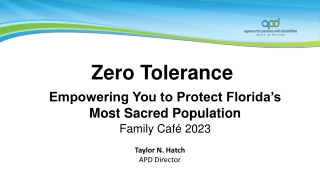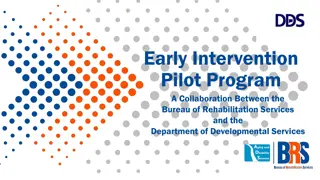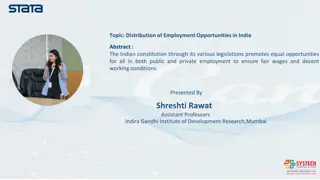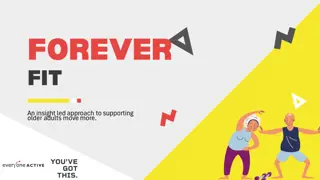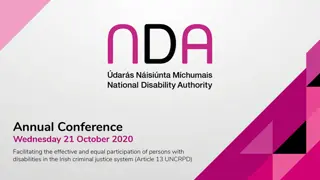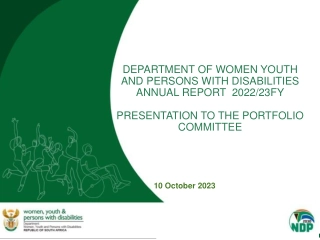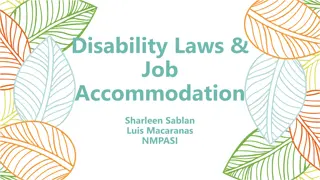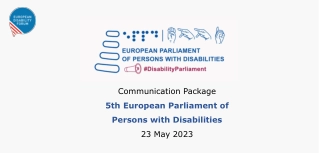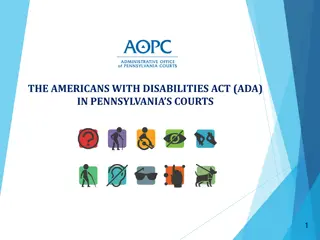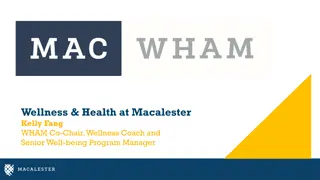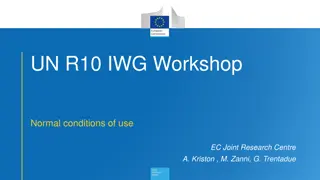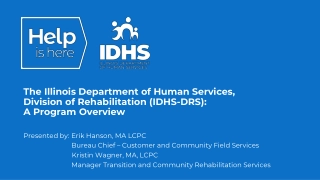Supporting Greater Manchester Residents with Long-Term Health Conditions and Disabilities into Employment
GMCA's Working Well programme in Greater Manchester provides personalized support to over 70,000 residents with long-term health conditions and disabilities, helping over 25,500 individuals find employment. The programme focuses on a keyworker model, personalized support, and integration within the wider ecosystem to deliver over 110,000 interventions. Various initiatives like Community Grants and Individual Placement & Support further enhance employment opportunities for residents.
Download Presentation
Please find below an Image/Link to download the presentation.
The content on the website is provided AS IS for your information and personal use only. It may not be sold, licensed, or shared on other websites without obtaining consent from the author. Download presentation by click this link. If you encounter any issues during the download, it is possible that the publisher has removed the file from their server.
Presentation Transcript
How GMCA is supporting people with long-term health conditions and disabilities into work through programmes like Working Well and others within Greater Manchester s devolved employment and health offer. Nic Witton-Dowd, Assistant Director, GMCA
Working Well: A Whole Population Approach to Health, Skills and Employment in Greater Manchester Working Well started in 2014 with a small long-term unemployed pilot to challenge the DWP s Work Programme and create a case for devolution. It has since developed into the system of devolved and test and learn provision that spans a whole spectrum of need. Working Well programmes (including pilots) have supported over 70,000 GM residents to date and helped over 25,500 people to find employment (many of whom were not likely to move into work without specialist support). At its heart are the following key principles: keyworker model, 1-2-1 personalised and sequenced support, integration with the wider GM ecosystem. The Working Well: Work and Health Programme alone has delivered over 110,000 interventions with external/other services (10 times more integration than the North West).
Working Well: Individual Placement & Support in Primary Care Referrals until end March 2025 For anyone with a physical or mental health disability (as defined by the Equality Act 2010) who wants and needs support to find or retain employment (in-work or out- of-work) Working Well: Support to Succeed (UKSPF People & Skills) Working Well: Work & Health Programme Community Grants (Strand 2 UKSPF People & Skills) Working Well: Pioneer Applications from Jan 24-June 24 Referrals until end Sept 2024 For out-of-work economically inactive (not required to search for work) residents with health conditions and/or disabilities or economically inactive and in one of the priority groups (listed below) Referrals Jan 24 to end Dec 24 For out-of-work economically inactive (not required to search for work) residents that are the furthest away from the labour market (priority groups listed below) Referrals until end Sept 2024 For unemployed residents with health conditions and/or disabilities (or in one of the priority groups below) and in one of the DWP Intensive Work Search groups For the hardest to reach communities with significant barriers to employment (in-work or out-of-work) Short and intensive intervention to support those at a significant distance from the labour market and approach their barriers to work; a specific offer is also available to those aged 50+ Intensive employment support using a place then train model which provides help to quickly move into an open labour market job and support to sustain that work Employment Specialists work with clients on rapid job searches, confidence building, CV development, employer engagement, interview techniques and reasonable adjustments Individualised support programme designed to bring together expertise and local knowledge to include integrated health, skills and employment support Grants of up to 100,000 to support residents with significant barriers to work and support them to progress towards inclusive employment Access is via self-referral or local signposting organisations with a small number of referrals from Jobcentre Plus: Working Well: Pioneer Access is via self-referral or a health professional in primary care: Working Well Individual Placement & Support in Primary Care (gcemployment.uk) Applications will be available from January 2024 through WEA: Greater Manchester Community Grants (wea.org.uk) Access is via self-referral or through local signposting organisations (programme not live yet details on how to refer TBC) Access is via the Jobcentre Plus and individuals should speak to their Work Coach if interested Pre-employment support for those out-of-work is provided for up to 12 months and in-work support is provided for up to 4 months Pre-employment support is provided for up to 15 months and up to 6 months of support is provided once a participant moves into work Pre-employment support is provided for up to 15 months and up to 6 months of support is provided once a participant moves into work No defined length of support on the programme participants will be on for varied and flexible durations Grants are available to VCSE organisations and Housing Associations Priority groups include ex-offender; a carer; an ex- carer; a homeless person; a former member of Armed Forces; a member of Armed Forces reserves; a partner of current or former Armed Forces personnel; a person for whom a drug/alcohol dependency (including history of) presents a significant barrier to employment; a care leaver; a refugee; young people in gangs; victims of domestic violence; an Afghan resettler Priority groups include ex-offender; a carer; an ex- carer; a homeless person; a former member of Armed Forces; a member of Armed Forces reserves; a partner of current or former Armed Forces personnel; a person for whom a drug/alcohol dependency (including history of) presents a significant barrier to employment; a care leaver; a refugee; young people in gangs; victims of domestic violence; an Afghan resettler Priority groups include people experiencing homelessness; caring responsibilities; health and/or disability barriers; offenders/ex- offenders; victims of domestic abuse; substance misuse barriers; former member of Armed Forces or partner of current or former Armed Forces personnel; experiencing racial inequality; low or no basic skills Funding is available for re- engagement and engagement activity to help residents overcome barriers that are preventing them from taking part in existing programmes Referrals to the programme are via primary healthcare organisations and the service also includes an in-work support element for those off sick or struggling in work due to their disability
How would we like the system to look? GMCA would like to see a more joined up system that is easier to navigate for both partners and residents. This would mean: Being clear about who, how and why we want to support particular groups of people. Who is being supported through a JCP work coach model? Who can self-serve through, for example, an enhanced Employ GM type digital service? And who needs to be supported through more targeted delivery? A single Working Well set of principles and brand for all employment (and health related employment) support in GM no matter where the funding comes from. This would show consistency throughout the system and avoid the stop / start nature of programmes. It would lead to less confusion and more confidence in referring organisations to engage with signposting people for support. A simplified referral process for all programmes, ideally through a single triage process that ensures the right person gets the right support through the right programme. A set of programmes / delivery routes that do not overlap, duplicate or create competition between providers for participants, where gaps in provision and support are minimised and those that need the support most get the most support.
